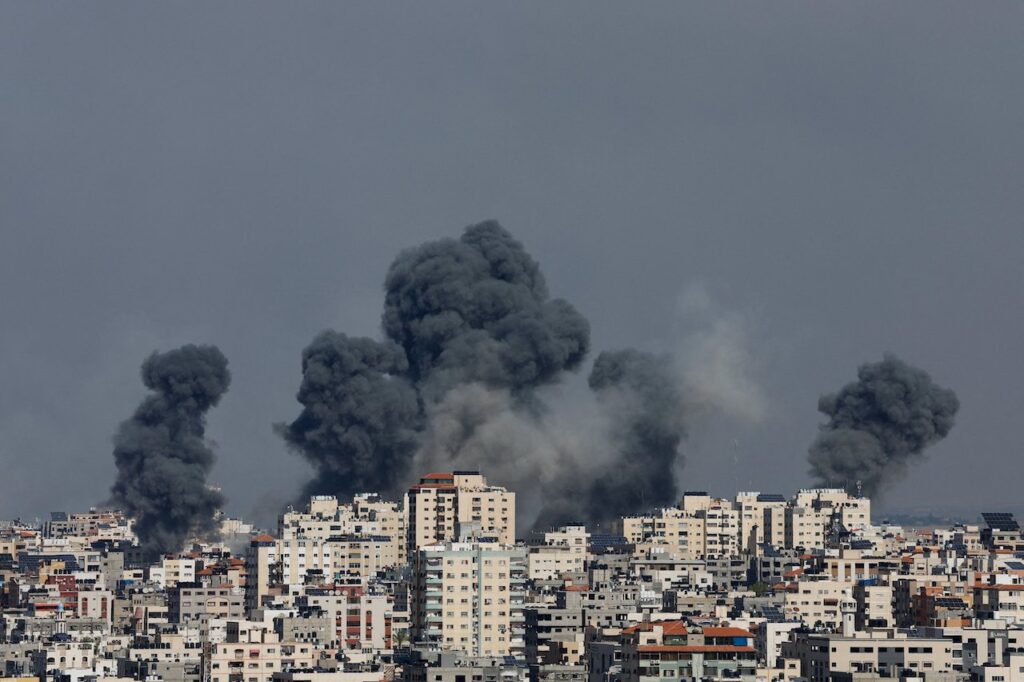As I write this column, the Middle East remains in the throes of war with hostages held, casualties mounting and threats intensifying. If by some miracle, peace has been restored by the time these words are published, and that what you are reading is “old news,” I would be grateful. However, it is unlikely that will have occurred.
Rather, hour after hour, we are hearing about and seeing innocent children and families victimized by terrorism in the Middle East war zone. At the same time, we remain aware of the pain, suffering and threats that those in other parts of the world, like Ukraine, are experiencing.
We are understandably prone to an interior sense of outrage at learning about and seeing the injustices of violence and terrorism. Simultaneously, we long for peace. We hope the violence and the resulting tragedies could not be perpetuated, yet we see the protests, too – the deep divisions between perceptions of right and wrong that are so strong.
Where is the truth in all of this? There is as much effort to be the most convincing in the propaganda war as there is to “win” any kind of physical war. It calls to mind the words attributed to multiple people: The first casualty of war is the truth.
What can we do? We feel helpless, frustrated. We get angry at what we’re seeing in the TV reports, and we don’t know how to respond, how to make a difference.
The ancient tradition of the Church when confronted by violence, suffering and death is to turn to our Lord in prayer and hope. We do this not only for those who have suffered and died, but for the survivors of violence, as well as for all the living, that we may live full, rich and peaceful lives. This is our continual desire.
On Oct. 17, the Latin patriarch of Jerusalem, Cardinal Pierbattista Pizzaballa, the highest-ranking Church leader in the Holy Land, called for a day of fasting and prayer for peace in the Middle East. (The previous day he offered his “absolute availability” to be exchanged for Israeli children taken hostage by Hamas.) Pope Francis designated Oct. 27 as a day of prayer, penance and fasting for peace.
It does not mean that we stop advocating for ways to end war, to work for justice and peace in the world through diplomatic channels. The fruit of justice is peace, and we continue to seek a path where both can be embraced. We start with and pursue them with prayer.
Throughout November, the month of All Souls, we contemplate death and dying. During Masses on All Souls’ Day, Nov. 2, we pray for those who have died natural deaths after long lives of peaceful existence and shared life with family and friends. We also remember others who have died tragically, sometimes violently.
In immersing ourselves in the Eucharist on All Souls’ Day, our Lord invites us to join the experience of suffering and death to his own sacrifice on the cross and to receive the grace that comes from our share in his Paschal Mystery. This is particularly fitting as our concerns about death and dying weigh heavier on our hearts during a time of war and violence.
Announcing the day of prayer for peace, Pope Francis stated, “War does not solve any problem: it sows only death and destruction, foments hate, proliferates revenge. War cancels out the future. … I urge believers to take just one side in this conflict: that of peace. But not in words – in prayer, with total dedication” [emphasis added].
As we pray for the deceased this month, especially the victims of war, let us be intentional – dedicated – in praying for and working for peace in our own lives, in our communities and throughout the world.
Our Lady Queen of Peace, pray for us.

